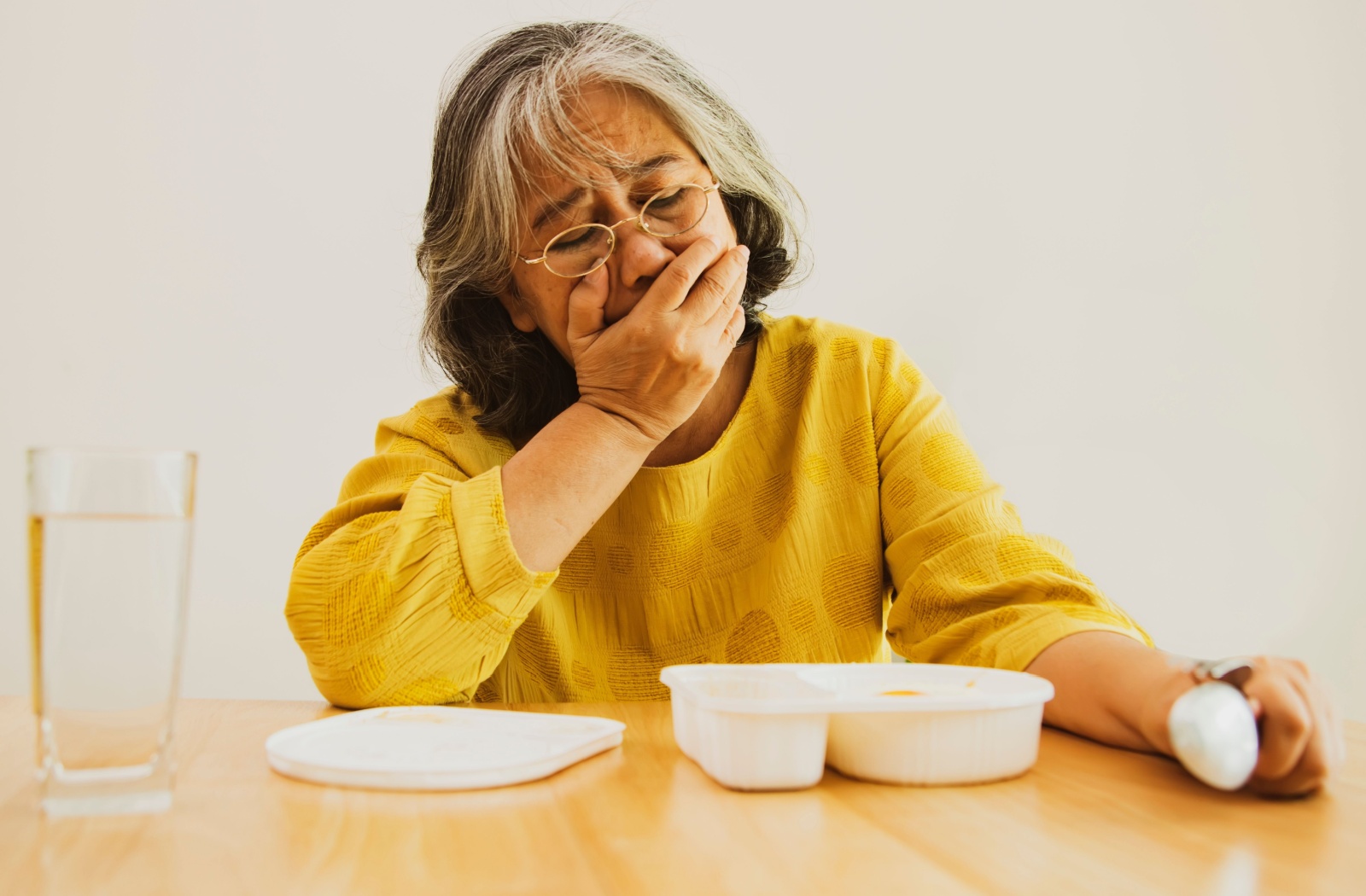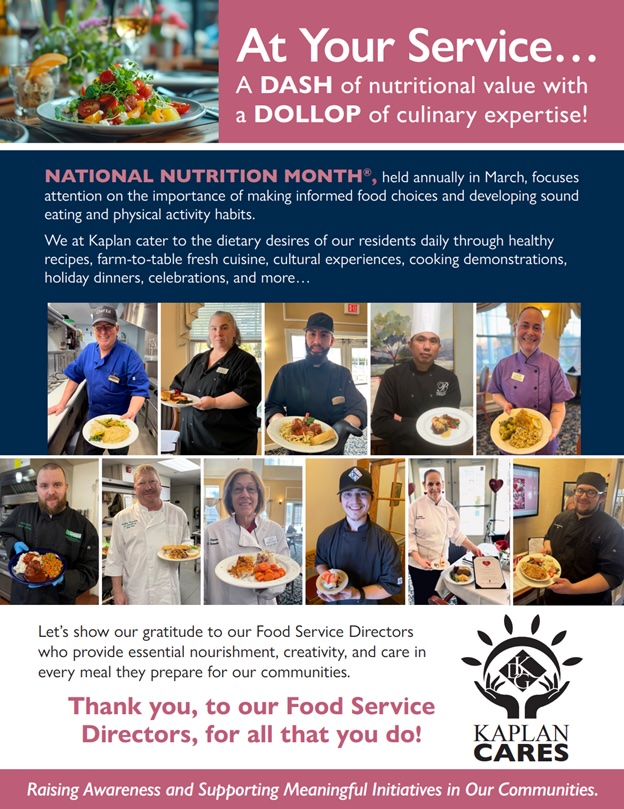Ensuring that seniors eat enough is often one of the most concerning challenges for caregivers. It’s not just about calories—nutrition impacts every aspect of a person’s well-being, from energy levels to immune health. Yet, many seniors experience a noticeable loss of appetite, leading to skipped meals and unbalanced diets.
There are plenty of reasons behind this loss in appetite, including slowing metabolism, depression, illness, and dehydration. Fortunately, you can help your loved one rekindle their desire for food by providing varied, nutrient-dense food options and structured, consistent meal times.
What Happens When Seniors Don’t Eat Enough?
When seniors don’t consume enough food, the effects can be serious and far-reaching. It’s easy to think missing a few meals won’t hurt, but long-term insufficient nutrition affects the mind and body.
- Reduced energy levels: When seniors don’t eat regularly, their ability to stay active declines, potentially leading to muscle loss and decreased strength.
- Nutritional deficiencies: Lack of proper sustenance can lead to vitamin and mineral deficiencies. For instance, insufficient calcium and vitamin D can worsen bone health, while low iron levels may result in anemia and chronic fatigue.
- A weakened immune system: Seniors who aren’t eating enough may find themselves more susceptible to illnesses and slower to recover.
- Cognitive decline: The brain runs on glucose, primarily derived from food. Without consistent nourishment, seniors may struggle with brain fog, confusion, or worsening symptoms of existing conditions like dementia.
What Causes Loss of Appetite in Seniors?
Appetite changes are common as people age—sometimes, the reasons are built into the natural aging process. Other times, external factors or medical conditions are at fault.
Age-Related Reasons for Loss of Appetite
There are some biological and psychological factors unique to aging that influence appetite.
- Slower metabolism: As their metabolic rate slows, seniors require fewer calories than when they were younger. While this is natural, it can create a sense of fullness even when nutrient intake is inadequate.
- Changes in taste & smell: Aging affects how flavors taste and how vividly scents register. Foods may seem bland or unpleasant, making eating less enjoyable.
- Dental issues: Missing teeth, poorly fitting dentures, or trouble chewing can make eating painful or frustrating, leading seniors to avoid meals.
- Loneliness or depression: Mealtimes are often social. Seniors who live alone or feel isolated may lose interest in food entirely.
Medical Causes for Loss of Appetite in Seniors
For some seniors, appetite loss is tied to specific health conditions or treatments.
- Chronic illnesses: Conditions like heart disease, diabetes, or chronic pain can sap energy and appetite.
- Medications: Many medications list appetite loss or nausea as side effects, especially drugs prescribed for pain, blood pressure, or cancer treatment.
- Cognitive disorders: Seniors with Alzheimer’s or other forms of dementia may forget to eat or lack an understanding of why meals are necessary.
- Digestive problems: Gastrointestinal issues such as acid reflux, constipation, or irritable bowel syndrome can cause discomfort after eating and discourage regular meals.
Other Factors Behind Loss of Appetite
Still looking for an explanation? Consider these less-recognized variables that might be influencing appetite changes.
- Dehydration: Without proper hydration, a senior’s appetite can dwindle. Often, older adults drink less water than they should, leading to decreased digestive efficiency.
- Overeating snacks: Eating too many small, calorie-dense snacks over the day—the seemingly safe option—can curb hunger signals for meals.
- Economic concerns: Some seniors worry about the costs of groceries, limiting their access to the variety they need for a proper diet.
How to Stimulate an Older Person’s Appetite
If a senior you care for struggles to eat enough, try these practical techniques to rekindle their interest in meals.

- Prioritize small, nutrient-dense meals: Avoid overwhelming, large plates and opt for smaller servings packed with nutrients. Foods like yogurt, nuts, avocados, and smoothies are calorie-rich without being heavy.
- Enhance flavors naturally: Use herbs and spices to compensate for diminished taste and smell. Fresh basil, rosemary, or a splash of lemon can make ordinary dishes irresistible.
- Introduce finger foods: If maneuvering utensils is challenging, serve easy-to-eat foods like cut fruit, cheese cubes, or mini sandwiches.
- Experiment with textures: Varying soft, crispy, smooth textures keep mealtimes memorable and fun.
- Focus on presentation: Add appeal to dishes with colorful ingredients and attractive plating. A visually appealing meal can increase interest in eating.
- Make mealtimes social: Eating is more enjoyable with others. Whether you invite friends over or sit down together as a family, the interaction can make meals exciting again.
- Establish a routine: Eating at regular intervals trains the body to expect nourishment at set times, helping to maintain a stable appetite.
How Senior Living Communities Can Help Regulate Appetite
One of the most effective ways to manage appetite changes is through an environment that fosters engagement and access to well-balanced meals. Senior living communities excel in this area.
- Consistent, balanced meals: These communities provide professionally designed menus that cater to seniors’ nutritional needs, ensuring access to healthy and satisfying options.
- Social dining experiences: With structured meal services and group dining spaces, seniors have regular social opportunities while eating, which can stimulate appetite.
- On-site support for health issues: Senior living staff are trained to monitor residents’ eating habits and address medical factors that may contribute to appetite loss. This includes partnering with dietitians or altering meals for special dietary needs.
- Activity-driven engagement: Many communities offer physical activities, cooking demos, and guided grocery shopping to keep seniors active and excited about mealtimes.
- Eliminating mealtime stress: These communities allow seniors to focus purely on enjoying their food by taking care of meal prep, cleanup, and grocery shopping.
Supporting Seniors Means Supporting Their Nutrition
Loss of appetite in seniors is more than a simple change—it impacts their health, happiness, and energy levels. By understanding the root causes and implementing strategies to address them, caregivers can improve their loved ones’ nutritional well-being.
All American Assisted Living supports seniors living their most whole and healthiest lives in our senior living communities. Contact us today to see how we can help your loved one meet their nutritional goals.



